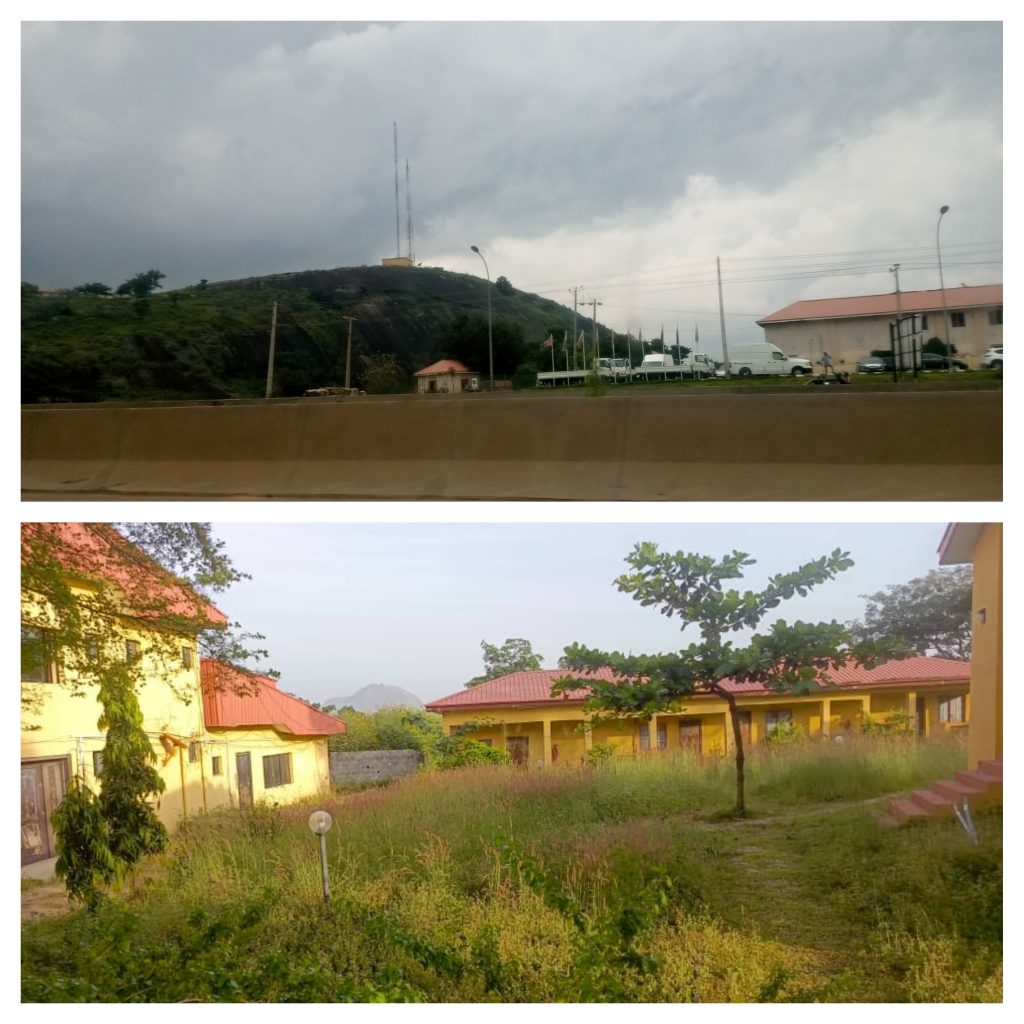
By Paparazzi Online
Abuja — The corridors of Aso Radio, once alive with the hum of voices and the rhythm of news jingles, now echo with silence, and sorrow. Once the pride of the Federal Capital Territory, Nigeria’s first FM station has fallen into heartbreaking decay.
Inside its hilltop headquarters in Katampe, the signs of abandonment are everywhere. The gate is swallowed by weeds. The once-bright signpost, bearing the Aso Radio and Television Services logo, now leans in rusted defeat.
“At our entrance, wild grass has overtaken the compound,” a staff member said quietly, his voice heavy with fatigue. “The air smells of dust and hopelessness. This place used to be full of life, now, it’s like a cemetery.”
The decline, workers say, has been slow and cruel. In the Marketing Department, cobwebs cling to damp-stained walls. Desks are buried under months of dust. Computers haven’t blinked to life in years.
“Every corner reminds us of what we’ve lost,” another employee whispered. “You can still see the stickers of old campaigns, faded on the walls. But the spirit that built this place, it’s gone.”
In the newsroom, only a handful of weary faces remain. They sit before dead computer screens, holding on to memory more than purpose.
“Most of us are ad-hoc staff,” said a woman who has worked at the station for nearly a decade. “We haven’t been paid for ten months. Some colleagues just stopped coming. Those of us who still come, it’s not because we expect anything. It’s just hard to sit at home doing nothing.”
Her colleague, once a lively news producer, looked up from an unlit monitor. “Programmes fail every day. News bulletins are missed. Nobody cares anymore. The Acting MD doesn’t even answer calls. We just exist,” he said, his voice cracking.
The man now presiding over this quiet ruin is Akin Ajibola, Acting Managing Director of the Abuja Broadcasting Corporation, which runs Aso Radio and Aso TV. He was appointed in September 2023 after FCT Minister Nyesom Wike dismissed 21 parastatal heads.
But to staff, Ajibola’s leadership has brought no revival. Instead, confusion and silence have deepened.
“We see adverts airing, mostly about Minister Wike’s activities, and even church events, but no one knows where the money goes,” one insider said. “We ask questions, but nobody gives answers.”
For many, it feels like the government has forgotten them.
“Wike came with bulldozers and reshuffles,” another worker said. “But who will rebuild us? Who will remember that we exist?”
Once, Aso Radio connected Abuja’s heartbeat, from the chatter of taxi drivers to the laughter in homes. Now, the station’s signal barely stirs on the dial.
A senior producer, his eyes fixed on a flickering light bulb above, sighed. “We’ve written letters. We’ve called the FCTA. Nothing. It’s like shouting into the wind.”
Outside, at the station’s gate, a Civil Defence officer leaned on his post, watching the fading compound. “You see this place?” he said softly. “It used to be something great. But now, it’s just dust, dust and memories.”
For the forgotten workers of Aso Radio, hope is not just fading — it’s gone silent.



